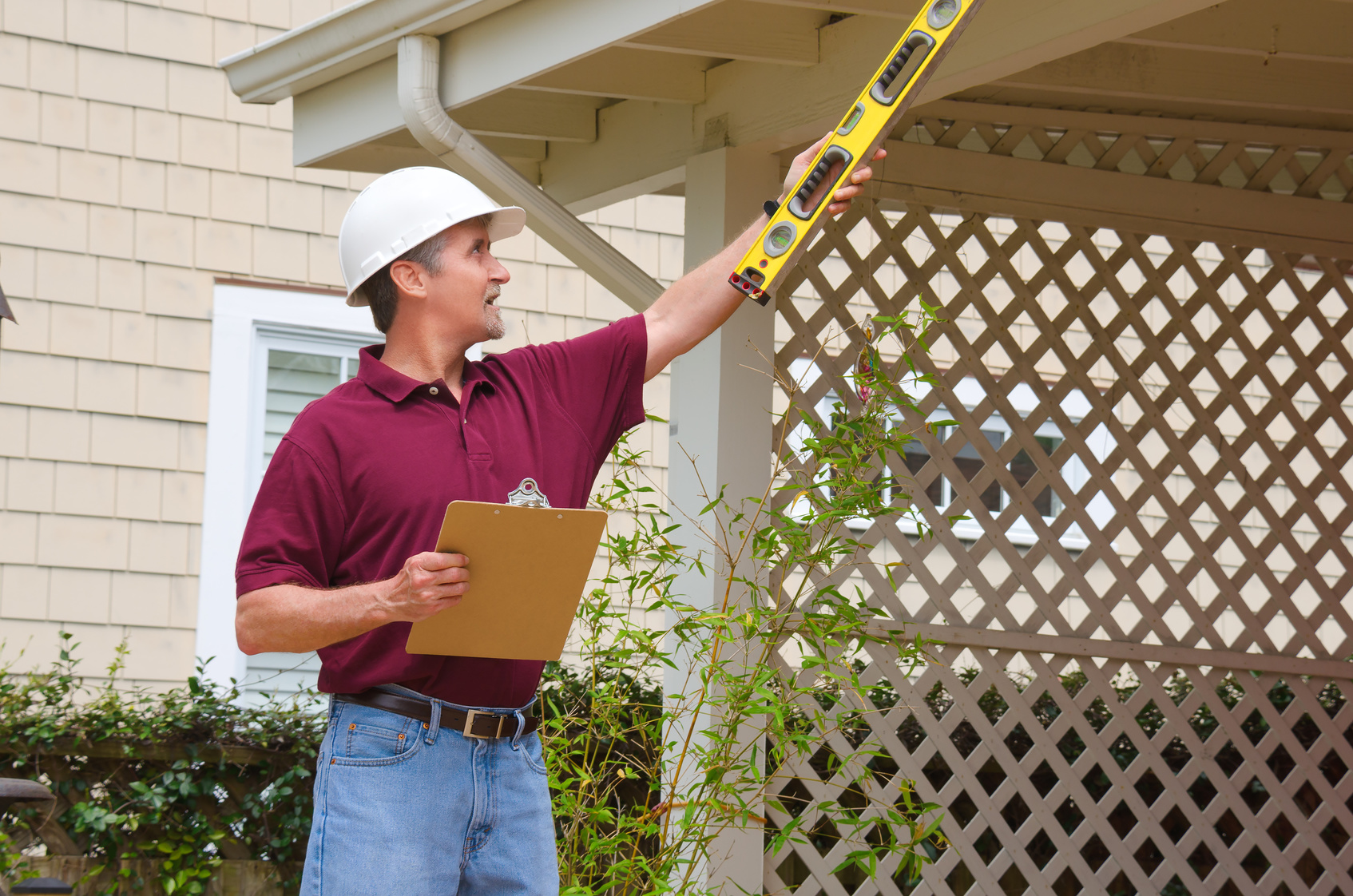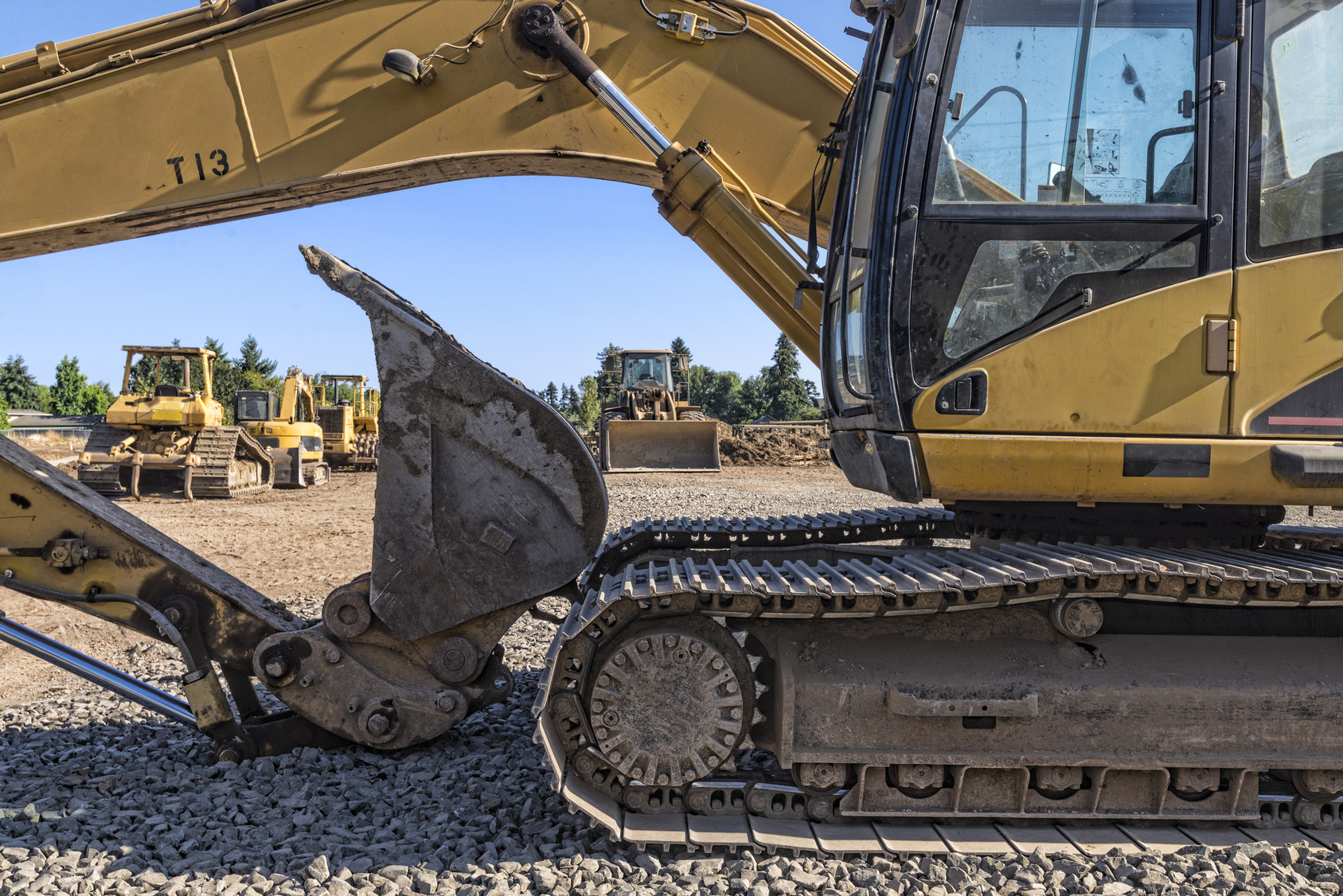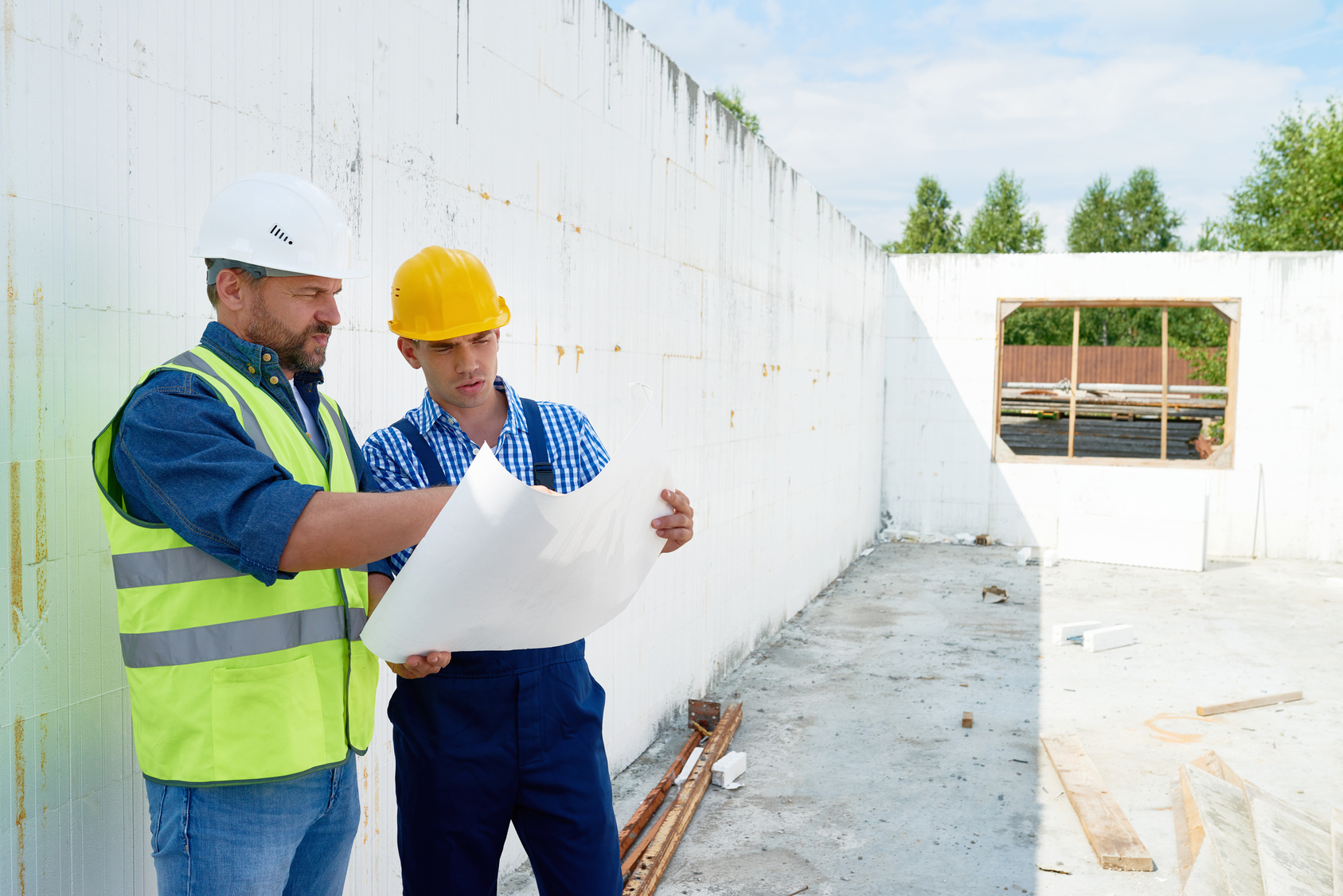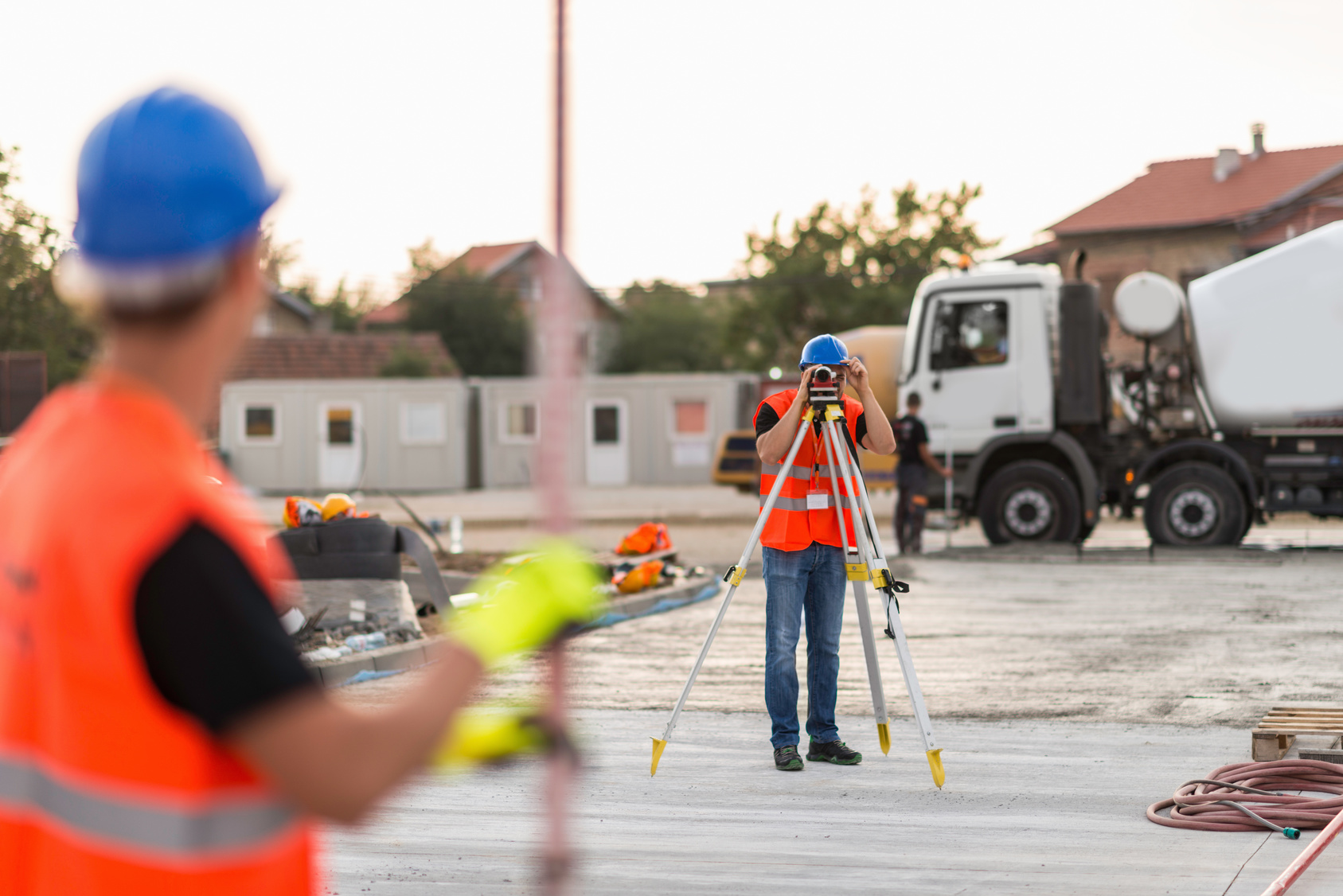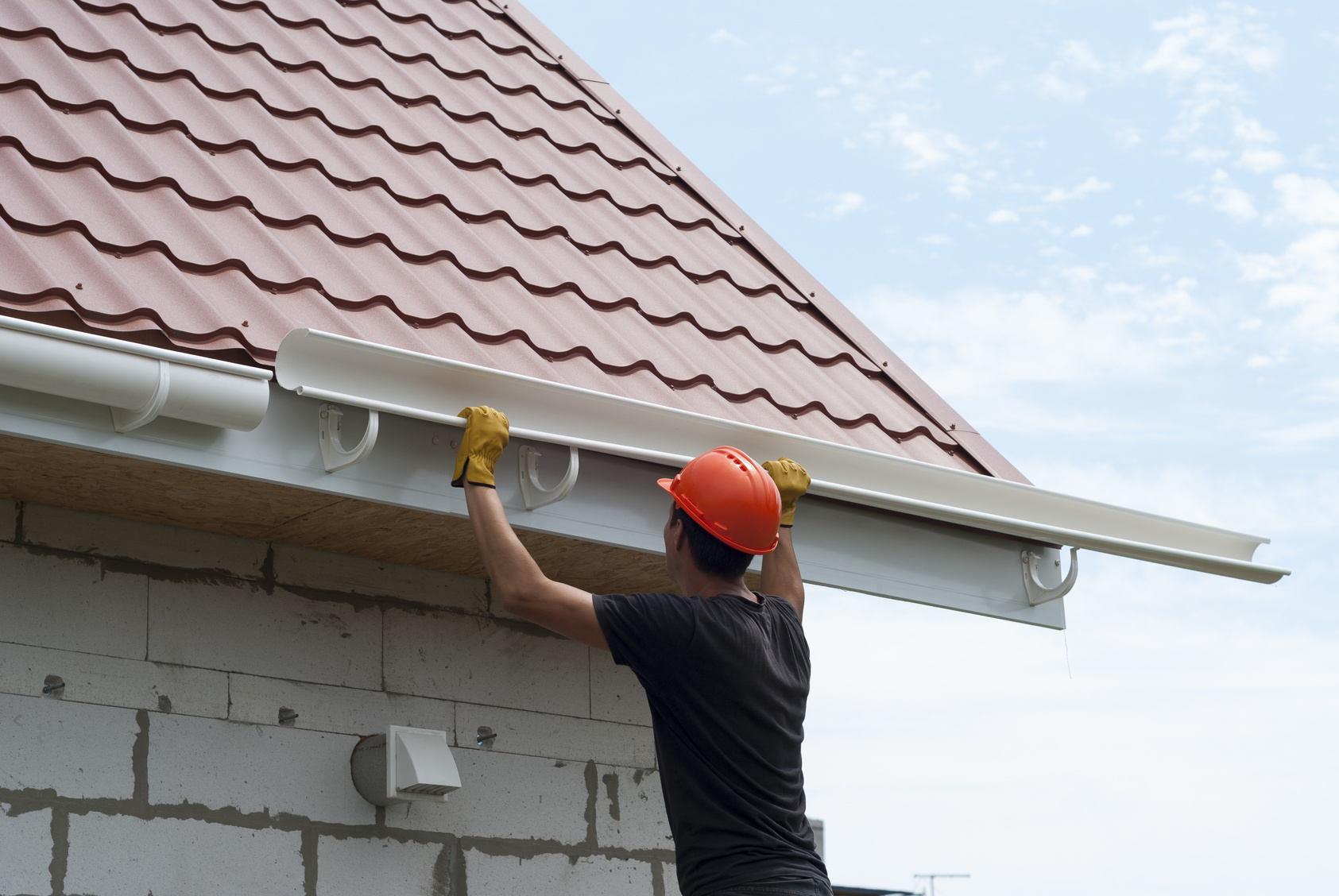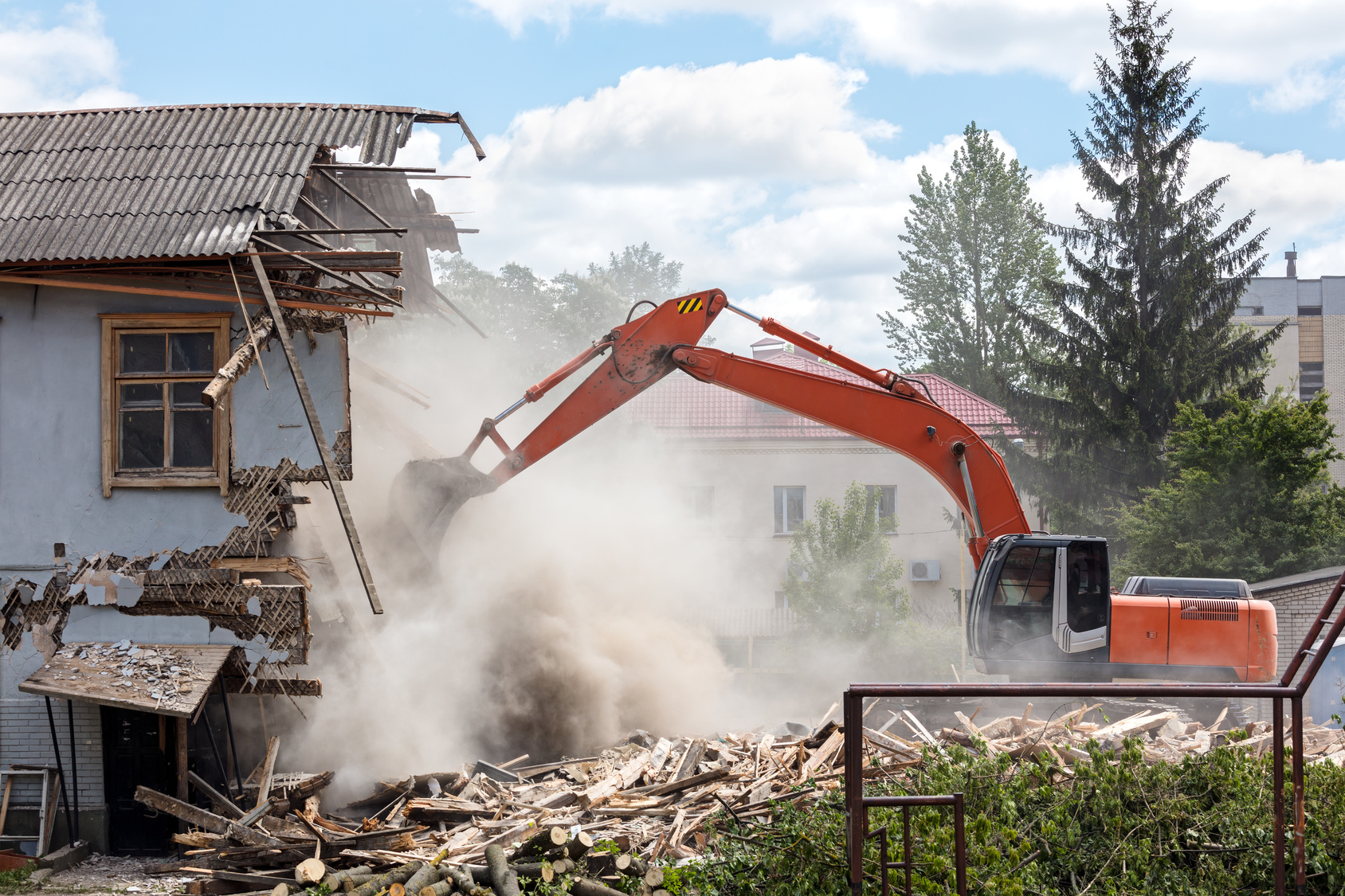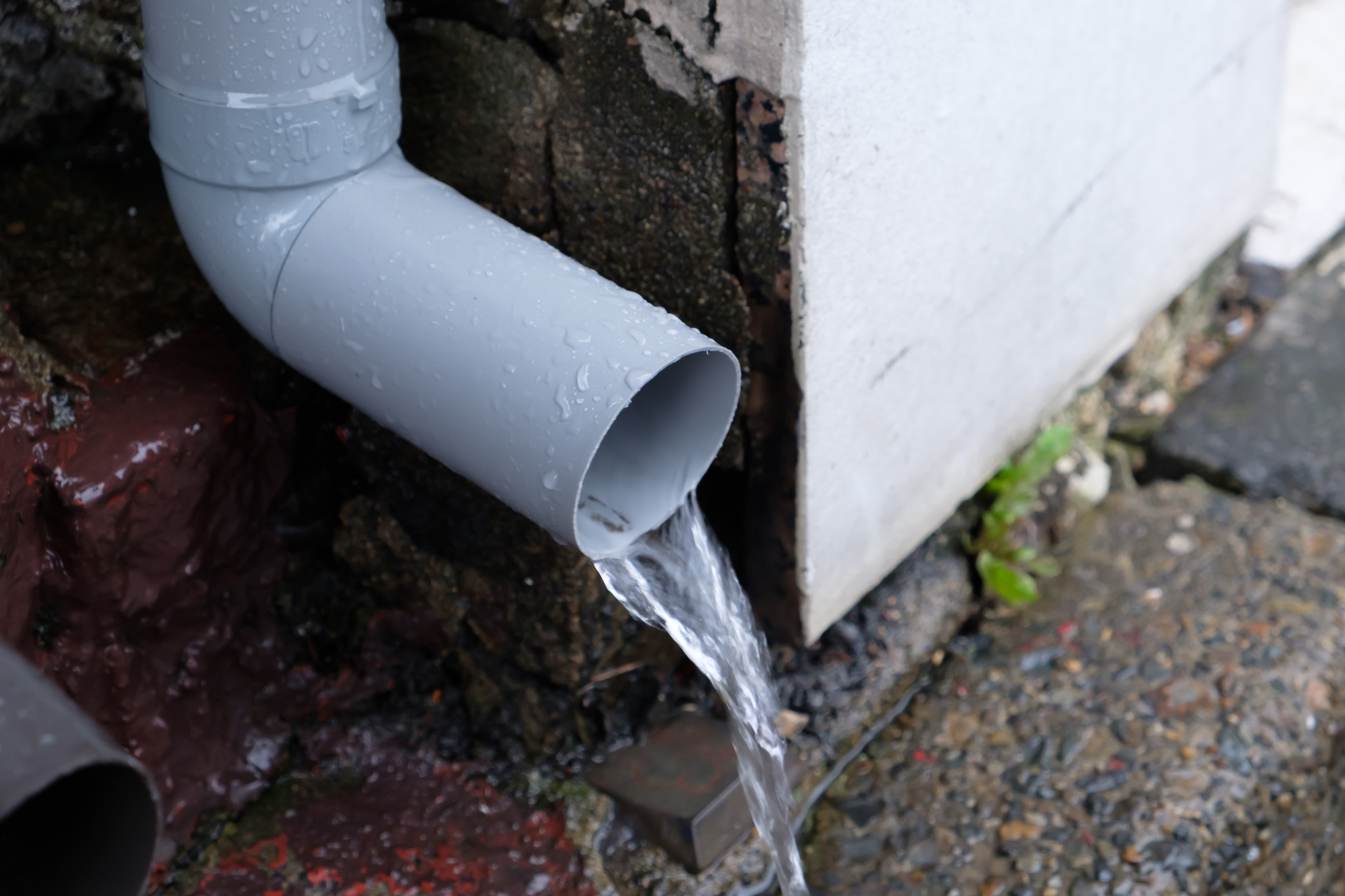Why You Need a Trusted Commercial Drainage Contractor
When setting up your business site, drainage may be one of the last issues to cross your mind. After all, people often overlook many of the unseen systems that allow their home or business to function without a hitch. But when big drainage issues arise, this invisible and seemingly unreachable system suddenly becomes a lot more important.
When the drainage system of your home backs up or breaks, it’s a huge nuisance. But when these issues occur within your commercial property, it could be a complete disaster.
That’s why you don’t want just anyone fiddling around with your drainage. You need an experienced, professional contractor who is trusted in their field working on one of your most precious and delicate commercial systems.
Drainage Issues
When it comes to commercial drainage systems, there are two important factors that aid in continued performance. They are cleanliness and efficiency. If your pipes become dirty they will, over time, become clogged.
Once fluid is unable to flow freely through the drainage system, the water that was rushing away from your property could make a reappearance. What does that mean for you?
- Flooded property
- Destruction of landscaping
- Foul odors
- Overflowing toilets or sinks
- Burst pipes as a result of pressure building behind a clog
Any of these horrible events could lead to a slowdown of your business. More than one of them could cause a chain reaction that would lead to the temporary closure of the site and suspension of operations. Can you afford to spend a day or two closed due to drainage issues? Most businesses can’t.
This hammers home the importance of skilled installation and continued preventative maintenance performed by an experienced drainage contractor. Anything less could leave you woefully unprepared for a disaster that would place your entire business at risk.
Preventative Maintenance
When it comes to your commercial drainage system, you should never wait until water is flooding your facility to take care of a problem. But how does one police issues with a system they cannot see?
Preventative maintenance.
Preventative maintenance includes regularly monitoring potential issues within your system and correcting them before they become total disasters. This is not something just anyone can do, and it’s another area where a certified and skilled drainage contractor is worth their weight in gold.
So, what goes into preventative maintenance? Regular cleaning is essential to keeping your pipes clog free. By maintaining a clean and clear system, your site will remain safe from the dangers associated with flooding, smell, drain backup, and the ultimate worst cast scenario, a burst pipe.
You should also have your drainage contractor regularly inspect the quality of your system. If they can identify small leaks, you have a chance to patch them up before they become massive business-impacting catastrophes.
Oftentimes, these diagnostic visits include snaking a camera through the drainage system to accurately gauge what is going on underground. This effectively eliminates guesswork and ensures that the correct diagnosis is given right away, and repairs can be made.
The Various Methods of Drain Cleaning
There is no magical cure-all fix for a malfunctioning drainage system. That’s why when you choose a drainage contractor, it’s important to make sure that they are well versed in various drain clearing methods.
Some of the most effective methods for unclogging your system are:
Chemical Drain Cleaning
Using liquid alkaline or acid, organic blockages are dislodged and dissolved. This is similar to pouring Drain-O down the sink, and while it is effective, it also comes with some dangers. A lot of the product typically used for this method are corrosive and can degrade your pipes further. So, you might fix the blockage issue, but in turn take the first step down the road to pipe leaks.
Chemicals are also incredibly dangerous, so it’s better to let a certified contractor handle them.
Air Burst Cleaning
Another popular method to unclog a drainage issue is to use carbon dioxide or other accelerated gasses to either dislodge or disintegrate the blockage. This is a faster method than chemical cleaning which poses no danger to the pipes themselves.
Hydro Jetting
Hydro jetting is similar to air burst cleaning, but it uses water instead of air. A nozzle is inserted into the pipe and high-pressure water is blasted inside at up to 35,000 PSI. The water breaks down the blockage and pushes it away. This is highly effective against mineral deposits and grease.
Snake Cleaning
A long thick snake-like tool is run through the piping with a corkscrew on one end and a hand crank on the other. The contractor uses the snake to drill away the blockage until it has disintegrated. This is most effective for large scale blockages and is particularly useful in clearing away plant intrusions.
Hire an Experienced Drainage Contractor Today
Don’t leave the future of your business in the hands of an amateur. You’ve worked hard to get where you are, and you don’t deserve to let something like a drainage leak force your life’s work out of existence.
Mikula Contracting has over 70 years of experience in the excavation and drainage industry. Not only do we troubleshoot and fix issues, but we educate our customers throughout the process, ensuring their 100% satisfaction.
For more information on how Mikula Contracting can help New Jersey’s Essex, Hudson, Bergen, Passaic, Morris and Union county commercial properties, call us at 973-772-1684, or visit us online.
Excavation Services Offer More Than Just Digging
When you contract for any business, you should know what you are getting. If you find a business that offers more than you expect, that’s a plus. For example, if you are in the market for excavation services, you might think it’s just digging, but there is so much more.
More than anything, business should offer honesty, productivity and smart decisions. They should also be a well-rounded business that can offer you anything you might require to bring a project to completion. That’s why it’s so important to know that excavation services offer more than just digging.
Why you might need excavation services
To fortify a foundation – for any new home or building, the first step is digging a hole large enough to secure a strong foundation.
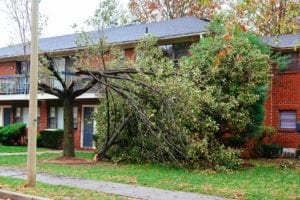 To restore your property after a disaster – major storms can wreak havoc on an area. Fallen trees and structures that have been blown down can leave your property or access roads blocked or uninhabitable. You might also experience flood damage, which can create erosion or drainage issues. Having standing water on your property is never wise as it can damage your land and breed insects. You may need excavation services to clean up the area as well as minimize any future risks.
To restore your property after a disaster – major storms can wreak havoc on an area. Fallen trees and structures that have been blown down can leave your property or access roads blocked or uninhabitable. You might also experience flood damage, which can create erosion or drainage issues. Having standing water on your property is never wise as it can damage your land and breed insects. You may need excavation services to clean up the area as well as minimize any future risks.
To clean up an environmental contamination – a leaking underground storage tank or a malfunctioning septic system can pollute the soil and eventually affect the groundwater for other nearby homes or businesses. If this occurs on your property, it must be handled right away, typically using excavation services.
To install or repair underground pipes – let’s face it, pipes often leak. Those located underground require excavation services to reach them so they can be repaired. You may also need to install them in the first place.
To remove trees or other unwanted materials – there are many reasons why you might need to have trees removed. They could be threatening existing structures or be in the way of new builds. You might simply want to gain more usable space for recreation or landscaping. There are perhaps just as many methods for getting rid of undesirable trees but nothing is as effective as excavation services.
To even out uneven land – grading or adding slope might be necessary for construction projects or drainage improvement. Professional excavation services can give you the right contouring for your property to be more attractive and efficient.
To dig sewer lines or ponds – if you are installing a pond, excavation experts are especially necessary. They will determine high and low areas, create the right slopes and account for winter temperatures. Sewer lines can also pose huge challenges. Backups, blockages and even tree roots make this work particularly demanding, which is why you should only trust experienced contractors.
To add a basement – building down is perhaps one of the most complex construction projects. If not done right, it can actually cause the kind of structural collapse you should only see in the movies. It takes an excavation services firm that is qualified, experienced and insured.
To get rid of a swimming pool – some people dream of owning a home with an in-ground pool. Others consider it to be an expensive, dangerous money pit. If you are in the latter category, pool removal might be in your future. There is more to this project than just filling in the hole. Sunken land, poor drainage and leaks are just a few of the issues that can occur if it is not handled properly. It should be removed without a trace that it was ever there and that takes the professional touch.
Why you should only use professionals for excavation services
Do it yourself projects have become almost a way of life for many people. There are numerous sources online that show you how to do everything from building your own computer to flushing out your water heater. Excavation services should not be one of them.
For one thing, excavation is dangerous work. Without the proper tools, training and equipment, you could end up causing irreparable damage to your property or seriously injuring yourself.
Some people believe they will save money by handling these types of jobs on their own or hiring a contractor who does not specialize in excavation. You will only waste your valuable time by working with amateurs. In addition, handling excavation services yourself will end up costing you more money in the long run. If it’s not done right or you make a mistake, you will have spent money doing it wrong and then additional money to fix it correctly.
What else is involved in excavation services other than digging?
-
Site preparation
To get your project off on the right foot, there is work to do before the real work begins. Inadequate site preparation can cause unnecessary delays and increased costs. This work may involve soil testing, zoning restrictions, and plan designs as well as site surveys and investigations.
-
Knowledge about soil erosion and ground integrity
When it comes to excavation services, experience is everything. For instance, professionals will know the right approach to take in order to preserve the safety and sturdiness of the land once the work is complete. Also, there are different types of soil and each reacts differently to excavation. That may be nothing compared to what’s underneath the top soil. A top quality contractor will have experience working with all kinds of conditions to give you the best possible outcomes.
-
Minimizing noise and vibrations
In excavation work, there is more to be concerned with than just the land you are on. The surrounding area, neighbors and other nearby structures must also be considered. Heavy vibrations can cause damage to buildings in close proximity of your project. Professionals will ensure that work can be done with as little nuisance and mess as possible.
-
Adherence to rules and regulations
In most cases, you can’t just go digging willy-nilly. There are usually laws and codes that must be obeyed. If you run afoul of these guidelines, you may face fines, lawsuits and even orders to put things back the way they were. Your contractor will be aware of aspects such as the various building codes to follow and how much advance notice to neighbors is required.
-
Safety and protection protocols
 Experienced contractors already possess the proper safety equipment for any situation. When conducting an excavation, you never know what you will encounter. Trenches can collapse, material can fall, and adjacent structures could prove to be unstable. These things can injure or even kill you if you are not prepared with the right tools and safety procedures. Worse yet, if you use an unlicensed, uninsured friend or contractor, you will be liable for these disasters. It’s also worth noting that your own property insurance might not cover you in the event of such an accident.
Experienced contractors already possess the proper safety equipment for any situation. When conducting an excavation, you never know what you will encounter. Trenches can collapse, material can fall, and adjacent structures could prove to be unstable. These things can injure or even kill you if you are not prepared with the right tools and safety procedures. Worse yet, if you use an unlicensed, uninsured friend or contractor, you will be liable for these disasters. It’s also worth noting that your own property insurance might not cover you in the event of such an accident.
-
Proper equipment
Having the right equipment for the job is vital for project success. You may need a bulldozer, excavator, loader, backhoe, dump truck or any combination of these. Still, you must know which ones and what size you need. How much time and money it will take to transport this machinery to your site is also a consideration.
-
Hauling away debris
Digging up all that dirt or other materials is only half the battle. You must also have somewhere for it to go. It can’t just be dumped anywhere you please. Once the work is completed, you will want the site cleared right away so you can move forward. Most areas have rules and regulations regarding different kinds of waste and how it must be disposed. And they are not sympathetic to those who dump illegally or improperly. You could be subject to expensive fines or penalties. There may also be environmental concerns, such as hazardous materials or trying to recycle as much as possible. Research shows that construction and demolition waste accounts for approximately 40 percent of total waste in America. That amounts to about 170 tons of debris every year. It has also been determined that more than 70 percent of this waste could be recyclable.
-
All that occurs after the excavation services
Just when you think your excavation project is complete, there is still work to be done. You should have the area inspected to be sure there are no hidden dangers left over. These could include spikes, glass or hazardous materials.
-
Finding the right company to handle your job
Getting a reliable, competent excavation services team for your project may be one of the most important choices you can make for your home or business. Choose wisely.
Look for contractors that have tons of experience in performing the type of work you need. They should also have a good reputation, fair pricing and the proper bonding, licenses and insurance.
Excavation projects take experience and training. Mikula Contracting handles foundation and construction excavation as well as rock removal and trench excavation. You can trust us for all your excavation needs. We service Essex, Passaic, Hudson, Bergen, Union and Morris counties. Call today for a fast quote.
9 Precautions to Take Before Hiring a Demolition Contractor
Taking every conceivable precaution may sometimes lead you to make no decision at all. However, taking precautions is necessary, especially before hiring a demolition contractor.
Precaution should not be used for over-thinking and indecision. It’s simply the first step in hiring a demolition contractor to help minimize potential risks and achieve the best possible outcome.
Why you may need a demolition contractor
Demolition is not a do it yourself project – You Tube and the Internet is filled with videos and tips for how you can save money by taking care of certain tasks without having to hire a professional. Demolition is not typically one of them. If you don’t really know what you’re doing, it’s best to hire a demolition contractor. They have the right equipment to get the job done in less time. By doing it yourself, you will likely end up paying more in the long run because you will have to bring someone in to fix any mistakes or misjudgments.
There is more involved than just breaking or blowing things apart – TV home improvement shows make demolition look like fun. Wrecking something you are unhappy with in the first place can be liberating. But that’s not all you need to be concerned with. You also must think about the effect on surrounding walls and structures as well as what you will do with all that debris. A quality demolition contractor will have the experience and knowledge to handle all aspects of the project, both anticipated and the unexpected.
Demolition is dangerous – you could be injured or killed from falling debris. The existing structure could be unstable, which may lead to damage to your property. Then there is the possible issue of power, gas and water lines. Failure to take all these matters into consideration might create a dangerous situation or even death for you and everyone else around you. Play it safe by hiring a demolition contractor.
Why it’s vital to take precautions before hiring a demolition contractor
If you are building a home, re-building a home or removing a structure from your commercial property, you will need demolition. Any major undertaking such as this is a big deal and should not be taken lightly.
Therefore, you need to find a demolition contractor that understands the job, is trustworthy and will do the job right. No two projects are the same so it’s vital to compare apples and oranges separately to ensure you get the right company for you. This takes preparation, planning and precaution.
Steps you need to take before hiring a demolition contractor
- Get references and actually contact them.
Every business lists reviews from satisfied customers on their website, but do you ever actually speak to these people? If you are like most of us, the answer is probably no. Nevertheless, this is crucial in finding the right demolition contractor for your project.
- Ask the right questions.
Have there been any complaints about their work? How did the demolition contractor handle those complaints? Do they have the proper certifications and licenses? What permits will you need and is the company going to handle this for you or do they expect you to take care of it? You should also check with OSHA for resources to find out if the company has a good track record for compliance and worker safety. This is essential whether you are hiring a demolition contractor for residential or commercial endeavors.
- Decide how you will function while demolition is taking place.
For example, if you are having your kitchen demolished to make way for renovations, how will you cook and eat until the job is done. How will you operate your business in the midst of noise, dust or blocked access to your building? Even if you are only having one small area demolished, the entire home or building might be unsafe and dangerous for you to stay there while the work is being completed. For your business, you might have to move certain functions to another location, such as your call center or conference rooms. You must determine what your backup plan will be so that you experience as few interruptions as possible.
- Determine your budget.
It’s important to develop a realistic budget for your project. Also, remember that sometimes things don’t go as planned and it could end up taking longer than estimated. As a result, you should add a little extra to your budget to compensate for unforeseen issues that could arise. For instance, removing a bathtub could reveal a leak that you were not aware of but that needs to be dealt with sooner rather than later. You should check around and get a few estimates. Then, even if you don’t select the highest bidder, budget for a cost that is a bit higher than the quote.
- Open the lines of communication.
It’s important that you and your contractor are on the same page. This cannot be done without frequent communication. Make sure you describe what you want in detail and that the contracting company is able to fully grasp your vision. More importantly, you must also comprehend their instructions and advice. If there is anything you don’t understand, ask questions. That way, everyone is on the same page and there are no surprises.
- Check that the demolition contractor is licensed.
One of the worst things you can do is hire a contractor who is not licensed. You are doing a disservice to your project and your property. Without the proper licenses, there is nothing stopping them from doing shoddy work or scamming you out of your money. Those that are legitimate will proudly display their license number on their website, social media pages and in official documents. If you don’t see it anywhere, this is a telltale sign that something may be amiss and you should run. When it comes to licenses, each state has different requirements. You can find information online that tell you the requirements in your state. It’s also imperative that your contractor is bonded and insured. In addition, permits should be displayed onsite throughout the duration of the work.
- Get a contract in writing.
A written contract puts everything you’ve discussed in black and white to eliminate the chance for shockers or unexpected disclosures after the job has begun. Your contract should spell out the scope of the project, a payment schedule, what equipment will be necessary and an estimation of the timeframe for completion. It should be as specific as possible and clearly state how any changes will be handled. This is legally binding for both of you so make sure you comprehend all details before signing on the dotted line.
- Watch out for red flags.
The last thing you want is to give up your money or get halfway through a job only to realize you have been scammed. At that point, you will ask yourself if there were any signs you missed and how could this have happened. When you are armed with the right knowledge, you can protect yourself.
- Beware of a demolition contractor that asks for payment in full before starting your project. They may tell you that they need the money to purchase materials but this is a warning sign. A top quality contractor with experience in the industry should already have what they need. Also, try to avoid paying in cash.
- If it looks too good to be true, it probably is. You may feel lucky if you find a contractor that quotes a price far below other estimates or tells you the job can be completed in no time. However, that joy will be short-lived when you discover they cannot possibly live up to their promises. This is often the sign of an unqualified contractor who doesn’t really know what it takes to get your job done. And they are counting on you not knowing either. A closer look may reveal a long line of disgruntled customers. You must look beyond price to find a contractor that is trustworthy, skilled and offers you a fair price.
- A contractor that lacks insurance is big trouble. If there is an accident or other calamity, you will be liable.
- Trust the demolition contractor you choose.
Don’t go through all this work only to constantly question every decision made by the contracting company. Keeping an eye on your project is understandable, second-guessing is not. If you have done your homework and selected the company with the most experience and skill, your project will be fine. Trust that they can handle any issues that come up and will communicate effectively at each step along the way.
Demolition projects take time, expertise and competence. Don’t trust your job to just anyone. Mikula Contracting can handle all your demolition and disposal needs. From garage demolition to asphalt removal, we’ve got you covered. We service Essex, Passaic, Hudson, Bergen, Union and Morris counties. Don’t live with that unwanted structure, room or ground material a minute longer than you have to. Call today for a fast quote.
Demolition: It’s More Than Just Knocking Stuff Down
When most people think about demolition, they envision wrecking balls plowing into the side of buildings or controlled explosions causing massive structures to sink into their foundation. But demolition is an involved and delicate process. There’s so much more that goes into the destruction of a structure than the simple act of knocking it down.
In fact, there are four very important steps that all demolition teams must undertake before they can even think about starting the process.
They are:
- Surveying
- Preparation
- Removal of Hazards
- Safety Measures
Only once all of these steps have been completed can a team move in and start tearing the structure down.
But what goes into these four key components of demolition that most people never see? And why is it important to hire the best team available to ensure that it’s done right?
1. Surveying
To survey a structure is to study the different parameters of the building itself and the area immediately surrounding it. This is typically undertaken in two steps. They are building surveys and structural surveys.
Surveying a building for demolition involves a lot of in depth analysis. We need to look back at its initial construction to gauge a few key components.
First off, we need to know what materials were used when the building was erected. Different materials require different strategies when demolition time comes around.
We also need to know what the building was used for prior to demolition. Was it a residence? A business? Did anything occur within that could change our overall strategy? Were harmful chemicals stored on the premises? These are all things that we need to know.
Speaking of chemicals, we have to determine if any hazardous materials exist within the structure. This includes wastewater, toxic chemical matter, flammable elements, and explosive or radioactive materials.
Drainage is another big concern. We have to gauge all possible water related issues, including pollution, flooding, and erosion.
If the building is sharing any facilities with an adjoining structure that’s something we need to address. Are there common walls, entrances or staircases? It would not be a good thing if another building came down with the first one.
We have to gauge the neighborhood as well. What does the through traffic look like, both pedestrian and vehicular? How will the surrounding area handle the noise, vibration, and dust? Are we creating a traffic hazard?
Once we know all of that, it’s time to survey the structure itself. What method was used when the building was constructed? How is the structural system laid out? What is the make up of the basement? Are there any underground vaults or tanks that we need to map out?
2. Removal of Hazards
Certain materials can cause adverse environmental and health conditions if exposed to the air. That’s why before demolition can occur, we have to remove these materials, lest we cause severe issues for the surrounding area.
Some of these include petroleum contamination, asbestos, or radioactive metals. We carefully remove these items from the site, disposing of them properly. It would not do well to release a cloud of asbestos into the sky as the building comes down.
3. Preparation
Once hazards have been removed and both building and structural surveys have been completed, then it’s time to create the demolition plan.
Yes, there’s a plan. You don’t just go in like the Hulk knocking buildings down.
A number of factors have to be taken into account and plotted strategically.
We take note of the location of the building, determining the distance between it and the adjacent structures, including buildings, streets, and street furniture.
We map out the buildings structural support to help us figure out the most efficient plan of attack. Then we begin to plan out the demolition procedure. That includes identifying the sequence of structural members that will be demolished and the demolition method that will be employed.
We also lay out protective measures such as covered walkways, catch fans and platforms, protective screens, hoardings, and safety nets.
Finally, we determine what our method will be for handling the debris left behind and lay out the time required for the entire process to be completed.
4. Safety
Before we start demolishing, the last thing we have to do it put all safety measures in place. All essential staff members are briefed as to what hazards exist and what our process is going to be.
We make sure that all non-essential flammable materials are removed. That includes any fuel, oil, timber, or wood. We make sure that these are stored in a proper facility far away from the demolition site.
We surround the demolition sight with firefighting materials and they remain there throughout the entire process.
We find suitable measures to protect our workers. There are multiple hazards which can adversely impact crew members, including chemical exposure, heat stress, dust exposure, noise exposure, ventilation, sanitation, and occupational diseases. We ensure that medical and first aid facilities are readily available.
In-Ground Demolition
Demolition is more than just knocking over a building. In-ground structures like foundations, basements, and in-ground pools are also part of the process.
We break up the concrete surrounding the pool or foundation and then break up the walls and floor. We remove the remaining debris, hauling it away in a dumpster. Any wood or aluminum framing that surrounds the perimeter also has to be removed.
Then, we have to fill the hole left behind with dirt or gravel. Once the site is graded, it is ready for grass seed to be laid down, or for a new structure to be built.
Conclusion
So much work and finesse go into the demolition process. It’s more than the mindless smashing that most believe it to be. When you’re planning your next demolition, whether it’s a commercial building, a home, a garage, or an in-ground pool, remember that you need a detailed and accurate team ensuring the safety and security of your property throughout the process.
Call Mikula Contracting for all of your New Jersey Demolition needs. We can be reached via phone at 973-772-7684 or reach out to us online.
Excavation and Preparation: Hire Mikula Contracting When Adding to Your Home
Excavation is the first and most important step in the construction process. Through excavation, the foundations of grand structures are laid out. It is that proverbial single step that launches a journey of 1,000 miles. It’s also an involved, complicated, and often dangerous process. Not just anyone can do it. That’s why you need an experienced and licensed excavation team like Mikula Construction laying the groundwork for your next project.
What is Excavation?
The process of moving rock, earth, and other materials through the use of equipment, tools, or explosives is excavation. The process includes trenching, earthwork, tunneling, wall shafts, and underground. It is typically used in applications of exploration, mining, environmental restoration, and construction.
Residential excavation refers to the process of excavating for the sake of home construction, whether that be an all new house, an add on, a garage, a pool, or any other structure that stands on residential property.
Excavation forges building foundations, roads, and reservoirs using the processes of digging, trenching, dredging, and site development. Unique tools, machinery, techniques, and expertise are required for all of these.
Surveying the Site
Excavation is more than just blind digging. Professional excavation contractors are more than just children playing in the dirt.
Before any shovel or heavy machinery touches the ground, a thorough site survey must take place. We make careful note of the natural habitats and artifacts that surround the site, taking care to preserve these for the future.
Then, sizing and depth plans are determined. We mark out the site’s boundaries before any excavation can occur.
The Process
Once surveys are complete, we can begin.
Typically, we start out by setting out the corner benchmarks and excavating to the approved depth. We dress the loose soil, install dewatering wells and trenches, mark the boundaries of the new structure, and build out the protection bunds and drains.
Drainage is incredibly important, as excess water sitting on your property can cause damage to your foundation and erode topsoil. To counter this, we may install a seepage pit underground.
When new homes are being developed, excavation occurs in large scale. Foundation, plumbing systems, electrical services, and utility cables have to be installed underground. Failure to use a skilled team could cause the foundation to sink, threatening the stability of your new home.
Before we start digging we have to clear the land of undesirable elements. Trees, debris, and large rocks, including boulders are included in this classification. This is done both to beautify the site and to avoid a potential fire hazard.
Removing undesirable elements from your property has a positive effect on your property value, significantly increasing it. Something so important is not a job that should be undertaken by anyone other than a skilled expert.
Excavations for Additions and Repairs
Adding onto your home requires precise excavation. We need to determine the ground’s ability to handle additional foundation before we begin the process. Shoring systems then have to be put in place once the soil has been removed.
Excavation is also needed to fix a number of issues that might be plaguing your home. With plumbing, septic, and electrical units all found underground, we have to dig in order to access them. Underground utility installation, trench shoring, and sewer digs also require excavation.
Who Should Excavate Your Property?
Excavation has to be delicate and precise. Because of this, you want a team that pays close attention to detail and comes fully equipped with the experience, skill, and licenses needed to do the job the right way the first time.
Advanced techniques, tools, and heavy machinery are needed in order to do the best possible job on your property. That’s why its best to hire a contractor instead of trying to take on a task like this yourself.
Mikula Contracting has been serving the people of New Jersey since 1946. That’s over 70 years of high quality experience. We handle everything from new home excavation to additions, repairs, installations, and the installation and removal of swimming pools.
We also specialize in demolition and disposal, drainage, tank scans, trucking and material delivery, as well as commercial excavation, oil tank removal, and snow removal.
We guarantee that your residential contracting project will be completed on time and on budget. We ensure this through a winning combination of integrity and excellence.
For more information on how Mikula Construction can keep your home safe and secure through residential excavation services, call us today at 973-772-1684, or visit us online.
Looking to Replace Your In Ground Pool?
Options for what can take its place
There are basically two types of people in the world: those who have always wanted an in ground swimming pool but never got it and those that have one and want to get rid of it. If you are in the latter category, you may be wondering what you will put in its place after the in ground pool is gone.
People who wish for a pool can’t understand why anyone would ever discard one. The truth is that there are a multitude of reasons why you may want to replace your in ground pool. However, before you make a final decision, you may want to figure out what you can do with a giant, gaping hole in your yard first.
Why you may want to get rid of your in ground swimming pool
Dangerous for children
If you have young children, an in ground swimming pool can be akin to a death trap. Even if you have a gate surrounding it with locks, children are quite resourceful so it’s never a sure bet that they can’t get in. Additionally, tragic accidents can happen whether your children can swim or not.
Extra yard space
Sometimes, you may have other plans for your yard space. Perhaps you have pets that you want to run free or creative landscaping ideas that don’t include an in ground pool.
You never wanted one in the first place
Purchasing a home is a major investment and commitment. It’s common to find a house that is perfect except for one or two factors. One of these might be an in ground pool that you want to dispose of.
Upkeep is too expensive
You can’t install an in ground pool and then just leave it. It must be maintained and sometimes repaired. In addition, having an in ground pool requires chemicals, cleaning, and opening and closing in winter and summer. There is also the added expense of high water and electric bills. The costs can quickly add up and lead to frustration, especially when you consider all the other things you could be doing with that money.
You’ve simply outgrown it
Perhaps you installed an in ground pool when your children were young and now they’ve grown up and moved away. Maybe you just don’t have time to use it anymore. Lifestyles change and interests often shift and one of those might be your desire for an in ground pool.
It’s in disrepair
If you have an in ground pool that simply doesn’t work (and it would be too expensive to fix), replacing it is definitely in order. Before you begin, it’s important to have a plan for what’s next.
You’re not using it
At first glance, having an in ground pool may have seemed like the ideal way to spend relaxing family time. Then, reality sets in and you discover that, due to weather and time constraints, you are not using it as much as you though you would. If that’s the case, the in ground pool is just wasting space.
To sell your home
In many areas, it’s actually harder to sell a home with an in ground pool. Potential buyers may not want to assume the responsibility and risk that comes with such a substantial backyard fixture. As a result, they will decide to purchase elsewhere. It’s important to note that even if you do replace your in ground pool before putting your home on the market, you should still disclose its former presence.
What can you put in place of an in ground swimming pool?
 Fire pit – this is a popular, charming feature that can really set your backyard apart from all the rest. It’s wonderful for gathering friends and family on either cool autumn evenings or beautiful summer afternoons.
Fire pit – this is a popular, charming feature that can really set your backyard apart from all the rest. It’s wonderful for gathering friends and family on either cool autumn evenings or beautiful summer afternoons.
Patio – the area from an in ground pool can be covered up and turned into a deck or patio. This is a great solution for some homeowners because you don’t have to worry about seeing the evidence of a former pool. The wood or cement will just cover it up. It also eliminates the need for complete removal of the pool. However, you may need to install pumps to prevent standing water from building up underneath.
Pond – there are many options if you want to turn your in ground pool into a pond. You can create a koi pond or one for other wildlife like fish, turtles and frogs. This typically involves different equipment, filling the bottom with gravel or installing a new liner. In the end, however, you will have a beautiful, unique backyard that will be the envy of the neighborhood.
Garden bed—the space from an in ground pool can be ideal for a flower garden or a fruit and vegetable bed. The area probably already gets plenty of sunshine. You can even be adventurous by covering the spot and making a greenhouse.
Dance pavilion – like to entertain? You can turn that old in ground swimming pool area into a place where guests can dance. Add some cool lights and a space for a band or DJ and your visitors won’t want to leave.
Nothing – you may choose to simply fill in the hole left over from an in ground swimming pool. Unfortunately, this is not as easy as it sounds. You must completely tear down the structure, find a way to dispose of the debris and get enough dirt to fill the hole. This is a task best left to professionals.
How to replace an in ground pool
- Depending on what you are putting in its place, you may have to dig holes to allow for drainage. Just backfilling the space is not enough. You must have a plan for the water. Otherwise, the area will become a muddy, unstable mess.
- Soil must be compacted to keep the area from sinking.
- Remove the decking and top few feet of the in ground pool to eliminate all traces of the pool.
- Do your homework to find out if any special permits or permissions are needed. Some areas have rules about how much of your in ground pool can be left in the ground.
- Hire only expert contractors. Replacing an in ground pool may seem like an easy DIY project but in actuality it can become a complicated, time consuming venture.
Excavation projects take experience and training. Mikula Contracting handles foundation and construction excavation as well as pool removal and trench excavation. You can trust us for all your excavation needs. We service Essex, Passaic, Hudson, Bergen, Union and Morris counties. Call today for a fast quote.
Commercial Property Drainage
Why it’s important
Talent, planning and insurance are all very important to your commercial business. However, while you are focusing on the big things, it’s vital that you not ignore the little things in the process. One such matter might be the importance of commercial property drainage.
Your commercial property is likely your company’s largest asset. It’s vital to protect it from harsh weather, accidental damage and commercial property drainage issues. Whether you are a CEO, property manager or maintenance manager, it’s likely that this responsibility falls on your shoulders. Learn how and why it’s important
The most common commercial property drainage problems
Water can be a powerful force. It has created some of the most amazing wonders on our planet, such as the Grand Canyon, Niagara Falls and the Stone Forest of China. This same power for beauty can also wreak havoc on your commercial property if its drainage is not handled properly. The most common problems include:
Clogged gutters, storm drains and downspouts
When the water cannot drain from your commercial roof, it sits there with nowhere to go. This can generate a multitude of problems, such as mold growth, mosquito and insect breeding grounds and deterioration of roofing materials. Often, the culprit is leave, dirt and debris that block the water flow. Tree roots can also be a factor. These must be regularly cleared and maintained.
Landscaping that impedes water flow
You may think that constructing a beautiful flower bed or outdoor leisure space will make your commercial property more attractive and enjoyable. This may be true, unless it interferes with the flow of water away from your building. Ultimately, anything that keeps water from flowing naturally will cause it to puddle somewhere. The cause is typically improper planning.
Grading dilemmas
It could be that it was improperly graded in the first place. You may have purchased a property and inherited a grading problem. Either way, incorrect grading can cause water to become trapped in a certain area or direct it toward your building.

Damage or disrepair of roofing materials
Factors like ineffective flashings, broken pipes and missing tiles or shingles can be the source of many drainage problems. If they are not performing effectively, it can cause water to drain into your building instead of off and away from it.
Runoff from surrounding properties
Sometimes, your commercial drainage problem may not be your fault at all, but caused by your neighbors. This can be especially problematic if your property is located downhill from other properties. Still, while not your fault, it is your problem and must be handled to prevent damage to your building and commercial property.
How do you know when your commercial property has drainage issues?
To the untrained eye, drainage problems can seem minor and insignificant. However, over time, they can lead to big headaches, such as wood rot, mold, and foundation weakening. Therefore, it’s important to know the signs and stop potential difficulties before they become worse.
Ponding water is a key indication of a problem. This can be found on your commercial roof, on sidewalks and in the parking area. During cold weather, this can freeze and cause falls, slips and risk of lawsuits. All that excess water could also damage your landscape and even kill grass and plants.
Soggy grass can also spell trouble. This may be seen in any grassy areas around your commercial property. While this might be trivial if it occurs only occasionally during a hard rain, it’s a huge issue when it happens all the time.
Erosion problems are a sure sign of drainage danger. You might notice it mainly on hills or inclines. It could also be visible from exposed roots on trees and plants. This condition poses a hazard for a landslide or risk to the structural integrity of your building.
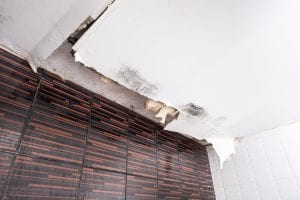 Water in unexpected places in your building is a clear signal of a drainage problem. For example, you may have water in your basement, leaks in your ceiling or ice buildup on the walkways.
Water in unexpected places in your building is a clear signal of a drainage problem. For example, you may have water in your basement, leaks in your ceiling or ice buildup on the walkways.
Look for cracks in the foundation that continue to widen as well. This may mean that water is seeping through, which can not only cause basement flooding, but can also weaken your foundation over time.
What to do about commercial property drainage trouble
Redirect the water flow – in some cases, commercial drainage problems are caused by topography and excess precipitation. You can add downspouts, landscape features or French drains to help route the water away from your foundation. Even something as simple as rocks or gravel may solve the problem.
Carefully monitor drainage – when it rains or snows, you should check that the water is draining properly. You may want to schedule an inspection with a top quality contractor to catch potential trouble spots. Just because you have not experienced a costly issue yet doesn’t mean you won’t. Some drainage problems occur slowly over time so it’s important to keep an eye on small issues so they don’t become expensive hassles.
Call the experts – a trained, experienced contractor can assess your commercial drainage issues and develop a unique and permanent solution for your property, but not just any solution. Our skilled and dedicated staff will use the right tools, materials and knowledge to get your commercial property in top shape. We will also help you create a customized storm management and drainage plan to prevent problems in the future. Don’t count on unqualified, unproven contractors with something this important. They will only leave you with a worse problem than you started with.
For demolition, disposal, and drainage concerns, you can trust Mikula Contracting. We can perform an onsite audit to examine your commercial property to fix your issues, conserve water and reduce your maintenance time, all to save you money and make your property more attractive. We have the talent, capability and capacity to handle even your toughest drainage matters. Drainage solutions, erosion control and water management are just some of the services we offer. We service Essex, Passaic, Hudson, Bergen, Union and Morris counties. Call today for a fast quote.
Getting Ready to Landscape? Preparing Your Property
New landscaping opportunities can be an exciting prospect for any homeowner. A beautifying transformation about to breathe new life into your property should be met with anticipation and happiness. But there are certain steps that need to be taken before ground is broken on your next big home improvement project.
Much like one might have to diet or take specific medication prior to surgery, so too does your yard need to prep for the massive overhaul that comes with landscaping additions. But what do you need to do to get ready for your landscaping project? How will you know if your home is ready? What can be done to make the process simple and drama free?
Prune Your Plants
You want to make sure to remove dead, dying, or diseased branches from any plants and trees. The ideal time to undertake such a task would be in the winter, when plants and shrubs are not growing. Pruning at this time prepares them for healthy growth come the spring. Many of these plants, shrubs, and trees don’t require hard cutbacks, which can leave them looking thin and ugly. Instead, a simple cutback will give them an opportunity to grow in a more aesthetically pleasing manner. This process ensures that, when new landscaping is installed, it won’t run into overgrowth issues.
Inventory Your Permanent Structures
It is important to maintain a map of your yard’s permanent structures. Potentially hazardous obstructions such as underground drainage or wiring need to be properly marked prior to any work being done. There are three main wires that can be run underground. They are cable, electric, and phone. It is important to survey the property and mark these important utilities. A breach in cable wiring could lead to an interruption of your television, internet, and phone services. Striking a live electrical wire could have potentially fatal results.
Another important utility to properly survey is water piping. A rupture in an underground water pipe could lead to hazardous flooding on your property, on top of interrupting your home’s water supply. Flooding can lead to dead grass, lawn fungal disease, and even in-home flooding, which could see the growth of harmful mold.
Test Your Soil
Before undertaking a large-scale landscaping project, it’s a good idea to test out the soil you’re planning to use for flowers or vegetable gardens. You should know the pH value of your soil so that you can accurately predict how well your new garden will grow. Plants typically do best in soil that has a pH level between 6.0 and 6.9. Lime and manure help to raise acidity or alkaline levels to the desired amount.
One issue to keep a watchful eye out for is the levels of clay and sand found within the soil. Too much can pose a serious threat to all gardening efforts. If there is a high concentration, consider mixing in a few inches of compost to increase the amount of organic matter within your land. Once levels are acceptable, you’ll be ready to install that new garden.
Rake Flower Beds
In order for plant life to grow and thrive it needs level land. You can ensure this by raking all of your flower beds. Also, you’ll want to remove larger rocks. Smaller rocks aid in drainage, so those can stay. This presents the perfect time to take note of how flat your property is. This will help you decide if you need to invest in any sloping options, such as a retaining wall. If leaves have finished falling for the season and have been removed from all flower beds, it is a good idea to begin applying mulch to make way for accelerated plant growth.
Remove Debris
Organic and inorganic debris should be removed prior to landscaping. Organic debris includes dead plants, weeds, rocks, leaves, food and vegetable waste, and woody materials. Inorganic debris can include plastic bags and other household waste. Any and all animal waste should also be removed from any area you’re looking to landscape. Weeds can be removed by hand pulling them out by the roots, or by using certain post-emergence herbicides.
Leaves and dead plants don’t have to be tossed out. They can be repurposed and added to a compost pile if you’re using one.
Remove Diseased Plant Life
If you’re going to be adding new plants, shrubs, or trees, the last thing you want is a spreading infection brought on by existing fungal diseases. These afflictions release airborne spores which can infect healthy plants, endangering your landscaping efforts before they even begin. Severe fungal infections require the removal and destruction of the plant to prevent the spread of spores.
If a section of an otherwise healthy plant is infected with a fungus, it is sometimes possible to cut that bit away and destroy it, saving the original plant in the process. If an infection happens to be less severe, using an appropriate fungicide could solve the problem. However, if taking this less destructive route, ensure that the infection is eradicated before moving ahead with landscaping.
Treat for Invasive Insects
Look for clear signs that invasive insects are present before giving them brand new vegetation to snack on. One tell tale sign that there are harmful insects nesting in your soil is the presence of the predators who eat them. If you see signs of nocturnal critters digging through your garden, there is sure to be something within that’s drawing them. Apply insecticide and/or larvicide to prevent worm reproduction. This will eliminate their ability to multiply and keep away the creatures that hunt them.
Eliminate Softscape and Hardscape Features
Softscape features such as plants, bushes, vegetation, and trees that don’t fit into your new landscaping plan need to be removed and can be taken out fairly easily. Hardscape features are decidedly more difficult to eliminate. These can include fountains, paving, retaining walls, foundation, in ground pools, and patios. The removal of hardscape features will require heavy machinery and is best left to professionals.
Mikula Contracting has been specializing in residential contracting services throughout New Jersey for over 70 years. Our residential demolition and disposal services can eliminate most hardscape features. We can remove concrete slabs, in ground pools, garages and even whole houses to make way for new and exciting landscaping. What’s more, we can undertake drainage and excavation work to ensure that your property is prepared for whatever grand vision you may have.
Our residential services extend to Essex, Hudson, Bergen, Passaic, Morris, and Union Counties. For more information on Mikula Conracting, visit us online. For a fast quote, contact us today.
Why you should let the professionals handle your residential demolition project
Often, demolition is necessary for construction. Sometimes, demolitions are actually renovations in disguise. And then there are times when you just need to demolish something for your own sanity and peace of mind. Whatever your reasons for a residential demolition project, only trust professionals to handle it.
Beginnings and endings are an essential part of life. How you handle them determines whether they are orderly and calm or a colossal mess. This is true whether you are talking about relationships, rivers or residential demolition projects. By letting professionals handle your project, you can ensure that all will go smoothly. There are many other reasons why it’s important to choose your contractor wisely.
Types of residential demolition projects
Whole house demolition – there are times when an entire house must go. This could be due to age and deterioration, infestation or local laws. If extensive repairs are necessary and the cost of repairs exceeds the value of the house, starting over is a smart option. You could also elect to remove a structure because all you really want is the land it sits on. It’s also possible that you’ve found the perfect location for your family to live but the house itself is ugly.
Disaster cleanup – weather can wreak havoc on even the strongest homes and structures. When a roof is severely damaged or there is significant flooding after a tornado, hurricane or snow storm, this is no longer a safe place to live. When a home has become unsafe or unfixable, it’s best to remove this threat altogether for community welfare or potential liability issues. If your home has been rendered structurally unsound, you may need to demolish all or parts of it and start over.
Making room for renovations – as they say, out with the old and in with the new. A kitchen renovation might require knocking out the back wall. That upscale bathroom you want could produce tons of debris from the old one.
Swimming pool removal – contrary to what every kid might think, swimming pools are not for everyone. Additionally, you may have purchased property with a swimming pool that is broken or in disrepair. This could also be a safety hazard if you have small children.
Top reasons why you shouldn’t take on residential demolition projects by yourself
Home improvement reality shows on television are filled with do it yourselfers who make residential demolition look so easy. Even when they experience problems or setbacks, this is shown as no big deal and it’s all handled within an hour long episode. The finished product is always pristine with no lingering issues.
While you may be tempted to follow their lead, this is a far cry from the reality you can expect. In real life, these situations lead to headaches, arguments and wasted time and money. Some projects are fine for the do it yourselfer, such as landscaping or repairs. Residential demolition is not one of them.
Reason 1: Residential demolition takes skill and experience
To do it right, you need to actually know what you are doing. A professional will have the proper tools and equipment, as well as the knowledge to handle any situation that may arise.
Reason 2: You may think that doing it yourself saves time and money, but it doesn’t
By the time you are done purchasing all the materials, renting dumpsters and troubleshooting problems, you could have just hired a professional. This is not including the time you may have to take off from work, manual hours put in from friends and relatives and the days or weeks spent looking at the unfinished project before it’s completed. If anything does not go according to plan, you will have to invest additional dollars to fix it. In the end, you will likely spend a lot more money and time trying to save money and time.
Reason 3: Your own safety
Studies show that more than 4,000 people are injured each year attempting do it yourself projects. Hundreds of deaths are linked to ladder falls alone. Attempting demolition projects on your own puts both your person and your property at risk for injury and damage.
Reason 4: Unforeseen issues
You may not be aware of all the potential problems connected with a do it yourself project. For example, you could unwittingly release toxins into the air or ground, encounter asbestos, knock down trees or disrupt underground power lines. This could create environmental or public safety issues and get you into trouble with the city or your gas or electric company.
Reason 5: Liability and insurance issues
Most insurance companies will not cover damages and injuries that result from do it yourself projects. You will also be liable from damages that may occur on neighboring or surrounding property as a byproduct of your demolition project. On the contrary, a qualified contractor will already have the necessary insurance and licenses required to tackle any residential demolition job.
Reason 6: To stay ahead of local laws and ordinances.
When you are planning any type of renovation or demolition, there are numerous rules and regulations you must follow. Failure to do so will result in fines and legal complications. These rules can change at any time and ignorance is no excuse for lack of compliance. There are various laws regarding things like harmful materials and debris, disposal of lead based materials, and open burning regulations. You may also be subject to state or local inspections that are either routine or the result of a complaint.
Reason 7: There is more to residential demolition than just digging and destruction
In addition to laws and regulations, there is more involved on your residential property than meets the eye. For example, you must deal with the utility company before you dig. Things like water, gas and electricity may need to be disconnected before you begin. A licensed professional will be aware of these types of issues and can steer you in the right direction.
At Mikula Contracting, we are residential demolition experts. We will evaluate your demolition needs and create a customized plan that is right for you. We service Essex, Passaic, Hudson, Bergen, Union and Morris counties. Call today for a fast quote.
April Showers and a Need for Proper Yard Drainage
They say that April showers bring May flowers. But if your yard has poor water drainage, nature might gift you with dead grass, foundation issues, and an increased risk of disease, instead. The value of proper yard drainage cannot be overstated. Without it, we open our properties up to unsightly damage, health issues, and problems which could impact the stability of the home itself.
Proper yard drainage affects more than just the aesthetic beauty of a property. Problems related to drainage can follow you inside the home and beyond. When it comes to the health and stability of your family and home, the issue becomes one of utmost importance.
But what is the negative impact that poor drainage can have on your home? How can it impact your life outside the house? What can you do to combat these issues?
Dead Grass
Plants need water to grow and thrive. During periods of drought, we’ve all seen our lawns turn yellow from lack of moisture. Much like a flower will wilt and die if deprived of water, so too will grass. But overwatering plant life can be just as hazardous as deprivation. Improper yard drainage will cause rainwater to pool in certain areas, drowning and killing the grass beneath it.
Not only is this unsightly, but lawnmowers cannot roll over these spots, due to the risk of damage. This makes the simple process of mowing the grass a complicated procedure. What’s more, this issue has the ability to follow you back inside the house as well. A simple walk through the yard will lead to muddy shoes, which can then track filth inside. Pets can also bring mud in with them, and they won’t wipe their feet off before bounding onto the carpet.
Attracting Dangerous Insects
Standing water is a breeding ground for dangerous and irritating insect life. Gnats can be common, but they pose no actual threat to our lives, save for being annoying and ruining cookouts. The danger comes in the form of mosquitoes. While mosquitoes primarily reside in tall grass and weeds, they reproduce in areas of standing water.
That means hundreds of newborn baby mosquitoes will make your yard the first home they’ve ever known and begin the process of chowing down on the blood of you, your family, your friends, and your pets. But mosquitoes do more than just cause itchy bites. These bloodthirsty buggers are noted carriers of diseases, some of them deadly. A few of the more hazardous ailments carried in the saliva of mosquitoes include malaria, yellow fever, and West Nile virus.
Lawn Fungus
 Did you know that your lawn can get sick? It’s true, and the risk of a lawn fungus spreading throughout your property increases exponentially when overwatering occurs. Grass Fungal Disease can present in a number of ways, some of which include: thin patches of discolored grass, spotted blades, powdery or threadlike coatings around grass blades, and darkened slimy looking grass.
Did you know that your lawn can get sick? It’s true, and the risk of a lawn fungus spreading throughout your property increases exponentially when overwatering occurs. Grass Fungal Disease can present in a number of ways, some of which include: thin patches of discolored grass, spotted blades, powdery or threadlike coatings around grass blades, and darkened slimy looking grass.
Fungal disease can effectively kill your lawn, spreading to other areas and ruining the entire look of your property. Once a fungal disease infects your grass, it can be costly and difficult to eliminate. The best preventative measure one could take in the fight against Grass Fungal Disease would be to have proper drainage throughout the property, ensuring that water does not pool around specific areas and overwatering does not occur.
Basement Flooding
If too much water gathers within your yard and has nowhere to go, there’s a chance that moisture might make its way inside. Basements and crawlspaces can be flooded, which can cause long-lasting damage to your home. Property stored within those areas can be destroyed by the incoming water, but perhaps the greatest danger of internal flooding comes in the form of continued air quality.
Flooding can cause mold growth which, when inhaled, leads to respiratory issues. This is one of the many ways that protecting the exterior of your home can help preserve its interior and your overall quality of life.
Ground Integrity
Flooding causes harmful shifts in the ground, which can create foundational damage to your house. Drainage issues can cause oversaturation around your home. This causes the soil to expand and, in turn, press against the foundation. This pressure can be so great that it causes cracks to form, severely affecting the home’s structure and necessitating costly repairs.
Foundation cracks that are more than 1/16 of an inch need to be repaired immediately. If left untreated, foundational cracks can lead to increased water damage, further exacerbated by continued drainage issues and structural hazards. Cracks can also elongate and deepen if not repaired, causing the concrete to fracture and crumble.
What Can You Do?
If your home has drainage issues, are you doomed to suffer at the whims of nature forever? Of course not. There are a number of ways in which you can help improve your home’s drainage.
If landscaping close to your home is causing an issue in the form of a natural basin, that’s a simple matter to fix. Extending the house’s downspout so that runoff flows past the landscaping usually solves this issue.
Installing trench and channel drains can help contain and direct the flow of water. This helps prevent inconvenient pooling. Also, it’s important to allow the drainage runoff to channel itself back into the earth. Once there, natural processes can filter the gathered liquid before it flows into a body of water, like a lake or river.
In-ground yard drainage systems can also help to correct naturally problematic draining in an area. Installing the system just under the surface ensures that bulky eyesore pipes remain out of sight while they perform this vital task.
Mikula Contracting has been solving yard drainage issues in New Jersey for 72 years. Our residential drainage services solve issues related to street water, lawn water, stormwater damage, and trench drain systems. Our comprehensive service also includes troubleshooting. We will identify your issues and then solve it with a winning combination of honesty and experience. Mikula Contracting provides drainage, seepage pit installation, and tank removals for homes in Northern New Jersey. We are proud to service Essex, Hudson, Bergen, Passaic, Morris, and Union counties.
For more information on Mikula Contracting’s residential draining services, visit us online, or contact us today for a fast quote.
